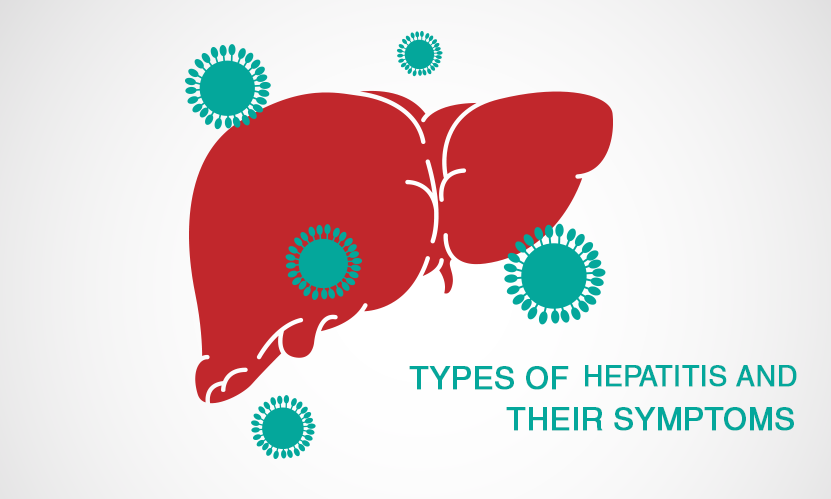Hepatitis is referred to as an inflammatory condition of the liver, commonly caused by viral infections. However, medical experts claim that it can possibly occur as a secondary result of medications, drugs, toxins, and alcohol.
There are majorly three types of Hepatitis that persist in the modern world i.e. Hepatitis A, B and C. According to the World Health Organization (WHO), Hepatitis B and C are responsible for almost 96% of all hepatitis morbidities.
Hepatitis Symptoms
Hepatitis can result in mild to severe illness followed by various complications. Thus, it is important to identify early symptoms and seek medical assistance as soon as possible. Some symptoms of Hepatitis include:
- Dark colored urine
- Abdominal pain
- Yellowing of eyes and skin
- Pale or clay colored faeces
- Unexplained weight loss
- Loss of appetite
- Fatigue
In case of hepatitis B, patients can also experience achy joints.
Types of Hepatitis
Viral hepatitis including A, B and C are a group of distinct diseases that can significantly affect the liver. According to the pharma company experts, each of the above-mentioned types has varied symptoms and treatments.
Hepatitis A
Hepatitis A is generally caused by an infection pervaded by the hepatitis A virus. It is commonly transmitted through consumption of contaminated food or water and can cause mild to severe illness. According to the WHO, the virus primarily spreads when a healthy person ingests edibles contaminated with the feces of an infected person. It is closely associated with unsafe food and water, improper sanitation, and inferior personal health.
Hepatitis B
Hepatitis B is a viral infection that attacks the liver to cause acute or chronic diseases. According to medical experts, although most people recover in a time span of about 6 months, prolonged illness can lead to life-threatening liver damage. A report by WHO (2015) claims that hepatitis B resulted in about 8.8 lakh deaths, majorly due to subsequent complications. Having sex with an infected person, drug abuse, and having direct contact with infected blood or body fluids are some reasons of transmission.
Hepatitis C
Hepatitis C is caused by the hepatitis C virus and can result in lifelong illness. However, experts from the top pharmaceutical companies in India claim that the virus is blood-borne and can spread by injection drug abuse, unsafe injection practices, improper healthcare, and transfusion of unscreened blood. Furthermore, since there is no vaccination available for hepatitis C, prevention remains the best practice.
According to medical experts, apart from the above-mentioned, there are two other types of hepatitis as well. Hepatitis D and Hepatitis E are two other uncommon conditions that can cause significant liver damage.
Disclaimer This blog solely intended for the educational/informational/awareness purposes and is not a substitute for any professional medical advice, diagnosis or treatment. Please consult your doctor/healthcare professional before acting on the information provided on the blog. Reliance on any or all information provided in the blog, is solely at your own risk and responsibility. Mankind Pharma Limited shall not be held liable, in any circumstance whatsoever.











